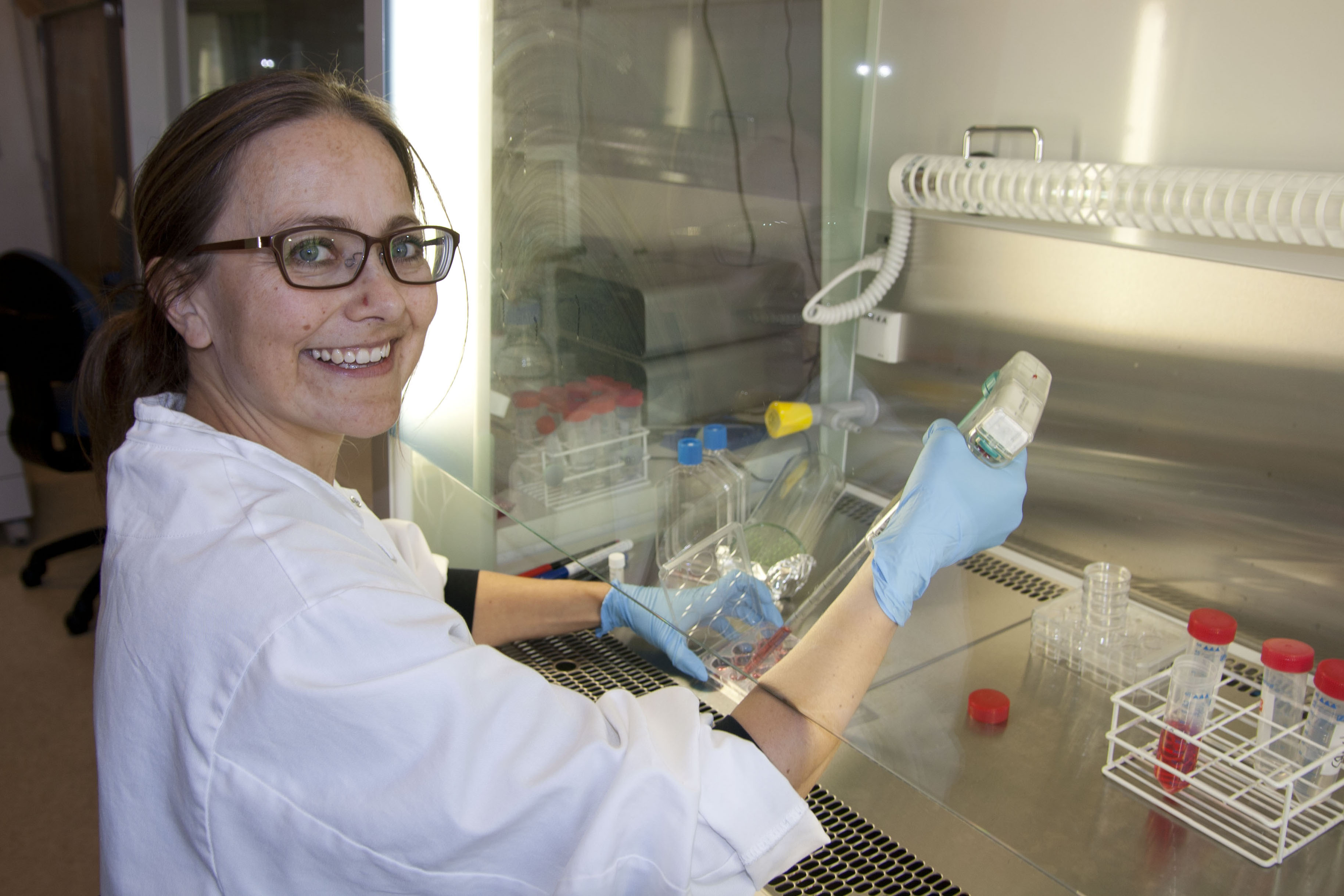Large grant for brain research
The Danish Council for Independent Research has just awarded a grant of almost DKK 6.5 million to Associate Professor Lisbeth Schmidt Laursen, Department of Molecular Biology and Genetics, to study the molecular mechanisms that help ensure protection of the brain’s nerve cells. In the long term, she hopes that her results will make it possible to develop new cures for neurodegenerative diseases such as multiple sclerosis.

The white matter in the brain consists of neuronal processes (axons) surrounded by an insulating membrane (myelin sheath) that supports the function of the nerve cells and ensures the rapid transfer of signals. During its development, the brain forms the sheath out of the highly specialised oligodendrocyte, which has processes that wrap themselves many times around different axons in a three-dimensional network.
Proper formation of the sheaths requires strong binding forces, but these must also be precisely controlled so the process does not ‘freeze’ solid. Molecules on the surface of the cells are responsible for this, and they must be able to bind to each other and let go in a controlled manner.
Associate Professor Lisbeth Schmidt Laursen has just been awarded a grant of almost DKK 6.5 million by theDanish Council for Independent Research (the YDUN programme). For the next three years, she will try to acquire a detailed understanding of the mechanisms that regulate the interactions between the binding molecules. The project also aims to identify new regulatory molecules, as well as identifying important transport processes in the oligodendrocyte. The mRNA encodes proteins that are transported to specific places in the cell.
“This grant comes at a very important time for my laboratory,” says Associate Professor Laursen. “Getting a laboratory into full swing is a long process, so we’re naturally happy to find out that we’re not the only ones who think we’re moving in the right direction,” she adds.
The work ranges from biochemistry and cellular biology to the use of model organisms, including genetically modified zebrafish that enable direct visualisation of the cellular processes in the nervous system.
Detailed knowledge of the molecular mechanisms that control the formation of the myelin sheath are crucial for developing new therapeutic strategies, especially in connection with neurodegenerative diseases such as multiple sclerosis, where the patient’s myelin sheath is damaged.
About DFF-YDUN
The Danish Council for Independent Research (DFF) is responsible for the YDUN (Younger women Devoted to a UNiversity career) programme, which can only be offered once and aims to strengthen talent utilisation in Danish research by promoting a more equal gender balance in the Danish research environments. The programme is open to all disciplines and both men and women are welcome to apply. However, dispensation from Danish gender equality legislation means that priority can be given to female applicants in cases where two candidates have the same qualifications.
More information
Associate Professor Lisbeth Schmidt Laursen
Department of Molecular Biology and Genetics
Aarhus University, Denmark
ll@mbg.au.dk – + 45 87154917
